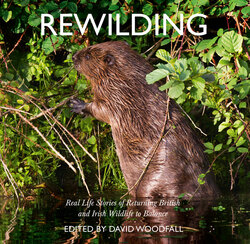Читать книгу Rewilding - David Woodfall - Страница 12
ОглавлениеUlpha Common, Lake District National Park.
Rewilding and Nature Agencies
Robbie Bridson
Between 1969 and 2007 I was privileged to work on nature conservation and land management as a Nature Conservancy Council warden, afterwards chief warden, and ultimately regional manager. Over this period my responsibilities involved working in Wiltshire, the Highlands and coast of Scotland, and North West England. During those 38 years, there was plenty of opportunity to be involved in species research and management on most major habitats. As chairman of the wardening staff association in Britain I had a unique opportunity to be involved throughout the country. After retirement in Cumbria my appointment to the Lake District National Park Authority gave an insight into planning, recreation and tourism.
Having been ‘out of the loop’ for some time my memories and assumptions might not be accurate, but I am aware that changes have affected the management of nature conservation over the past 50 years.
It seems improbable now, but I recall that in 1974 there were only two of us (a warden and a scientific officer) working on the ground in Scotland south of the Clyde and Forth. The RSPB had wardens on sites in Britain but many fewer in number than now. The Wildlife Trusts were not widely known and had few site managers.
The National Trust was involved in its country house management, landscape, and recreation, with just a small number of staff dedicated to nature conservation. The Forestry Commission was focused on timber production.
All that has changed. I am always pleased to see Wildlife Trust staff featuring regularly on Countryfile and the RSPB has become the most well-known and influential organisation for nature conservation in the UK with many links to the rest of the world. The National Trust employs dedicated ecologists and staff who are knowledgeable and effective in safeguarding the natural environment on their properties. The same commitment to nature conservation with well-informed staff has occurred in the Forestry Commission along with their emphasis on recreation. Throughout Britain local authorities now have officers working in all aspects of managing the environment and involving people.
When I became a warden there was no training to equip anyone becoming involved in nature conservation. Working as a volunteer was a way to become part of the system but there were no academic or technical opportunities. Today there are myriad colleges and agricultural establishments offering degrees in a range of land and wildlife management. Perhaps there are already courses in rewilding?
Governments have also made some major changes that improve the safeguarding of biodiversity, with the Wildlife and Countryside Act 1981, the European Habitat and Species Directives, and the creation of the Environment Agencies perhaps being the most significant.
It might seem that wildlife is now safeguarded in Britain, but it all remains vulnerable. The long-term consequences of climate change, agricultural intensification, pollution, and development will always be major threats.
Looking back over the years, I feel there are some aspects of the changes to the Scottish, Welsh and English wildlife agencies that have diminished their ability to protect the environment. They are directly linked but there are three elements that I feel are significant.
The break-up of the Nature Conservancy Council The government set up the former Nature Conservancy (later Nature Conservancy Council) with very focussed policies based on science and research. The agency was filled with dedicated, and inspirational, ecologists and developed into a national network. I remember that if there was a question, for example about entomology, ornithology, or geology, an expert was at the end of a phone and could arrange a visit. That national network and the focus on science and research has gone.
The clumping together of the environmental responsibilities This would seem a positive move, as all the impacts on our environment are linked and should be coordinated, but it relies on sufficient qualified staff and management. My occasional discussions with former colleagues in the three national agencies reveal that their nature conservation responsibilities are being overwhelmed because recreation, development and agriculture have a higher profile.
The diminished power of the national agencies Would the problems faced by the efforts in safeguarding scheduled coastal sites from golf development in Scotland, or fracking in England, have had a different outcome with a national and powerful nature conservation agency? Long-serving staff I knew in the RSPB and the Wildlife Trusts have negative views about the power and effectiveness of the agencies, which saddens and worries me.
Clump of ash trees, Snowdonia National Park.
Yes, there is so much to celebrate in the work of the non-governmental organisations and individuals in safeguarding our dwindling wildlife. The contributors to this book show the range and diversity of rewilding projects making a positive difference to benefit our wildlife.
The work never ends. National and local governments have policies and commitments to safeguard and improve our natural environments. They must, however, be constantly held to account and balance the pressures from so many other powerful interests.
